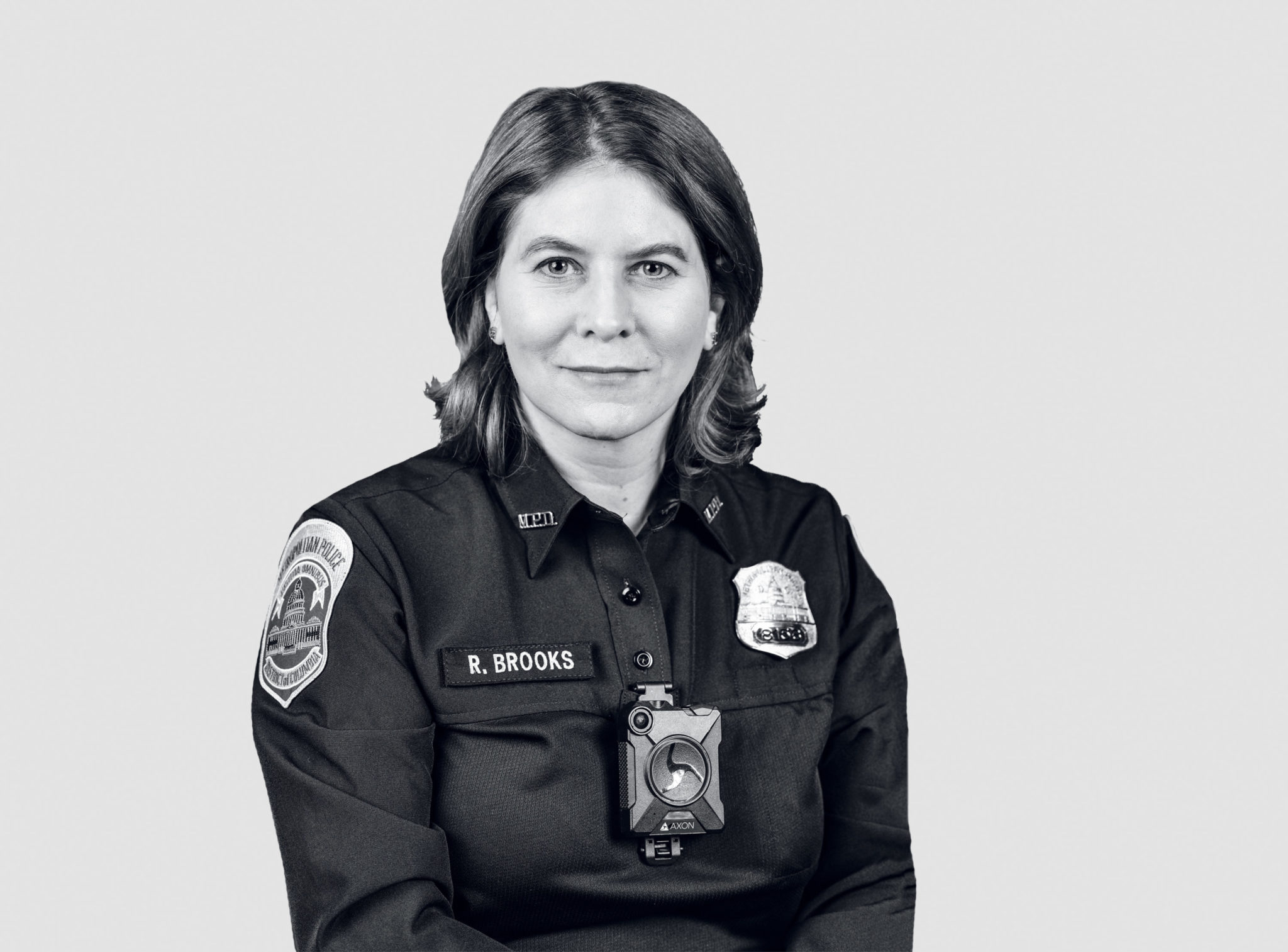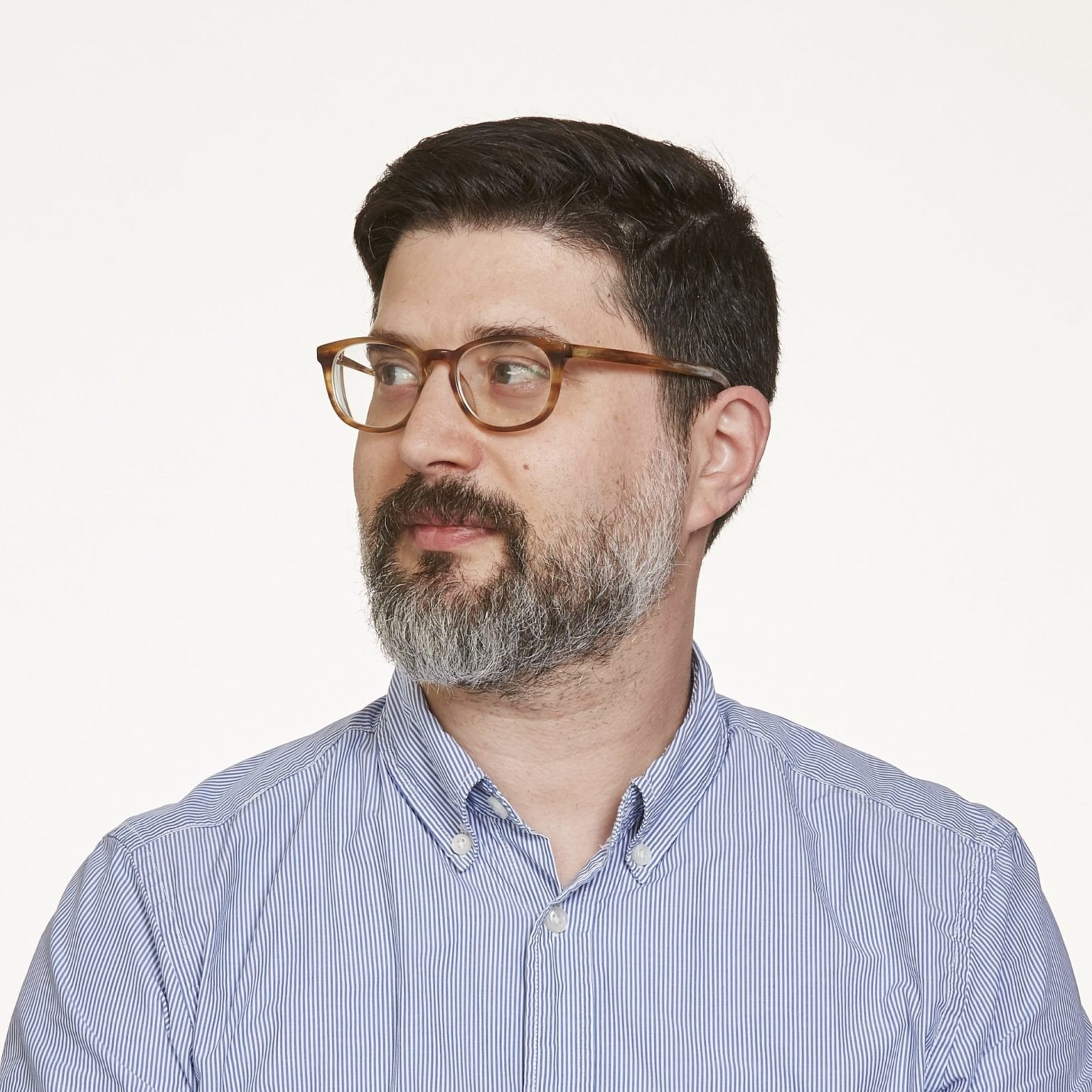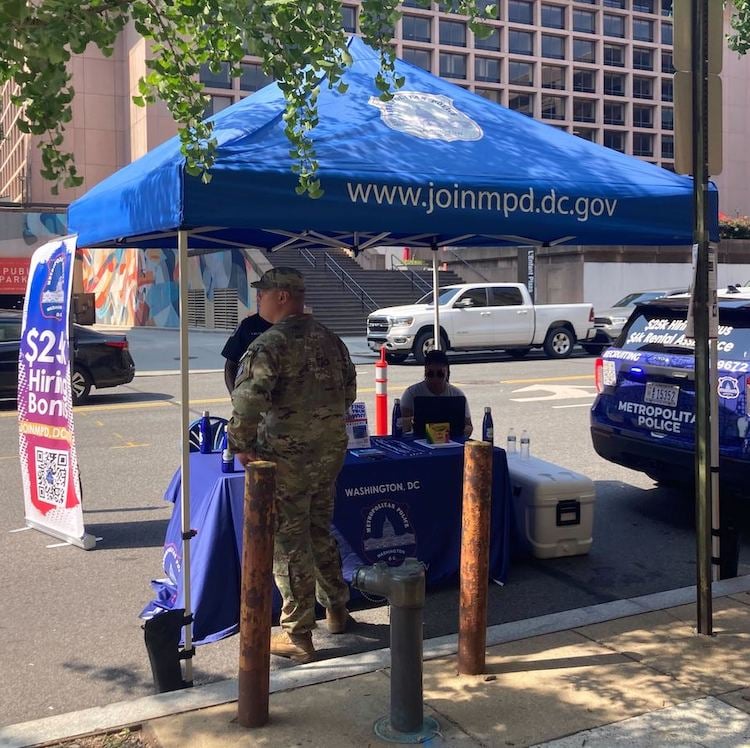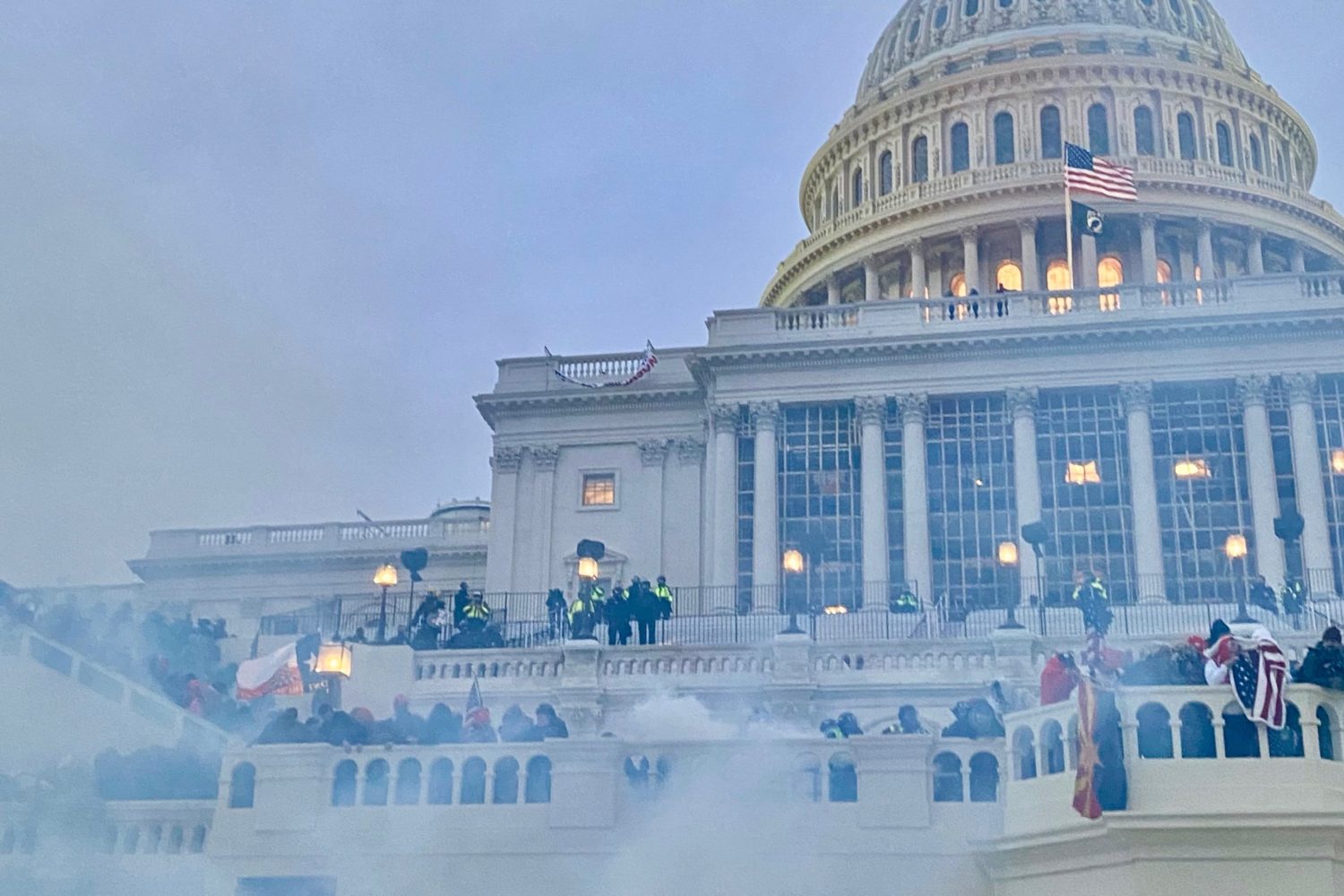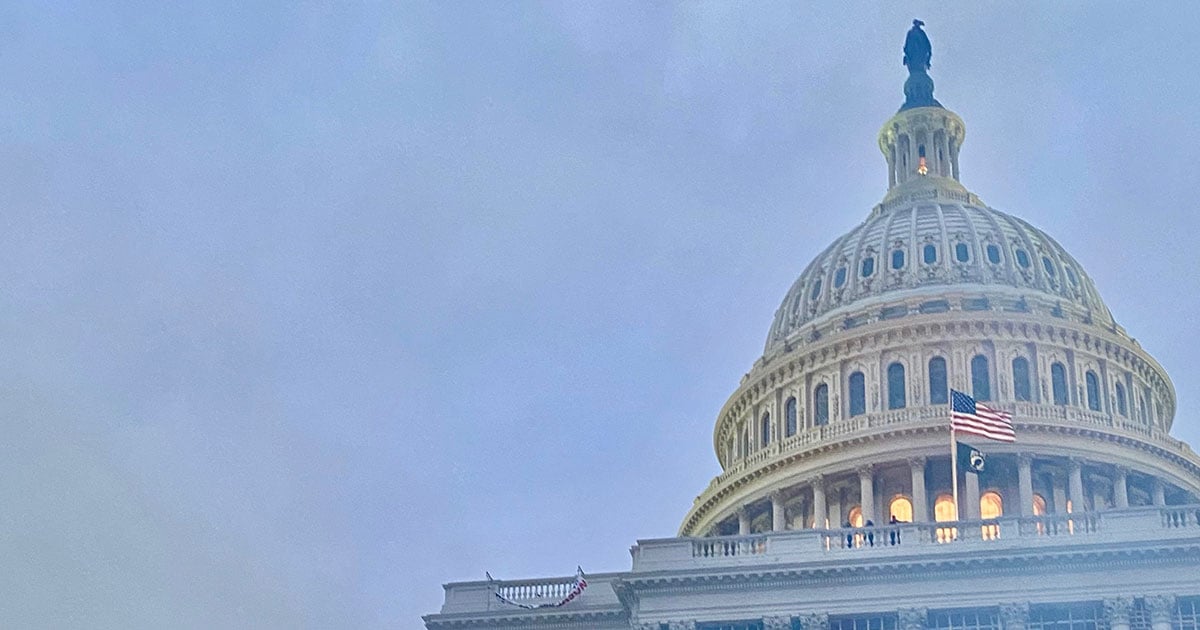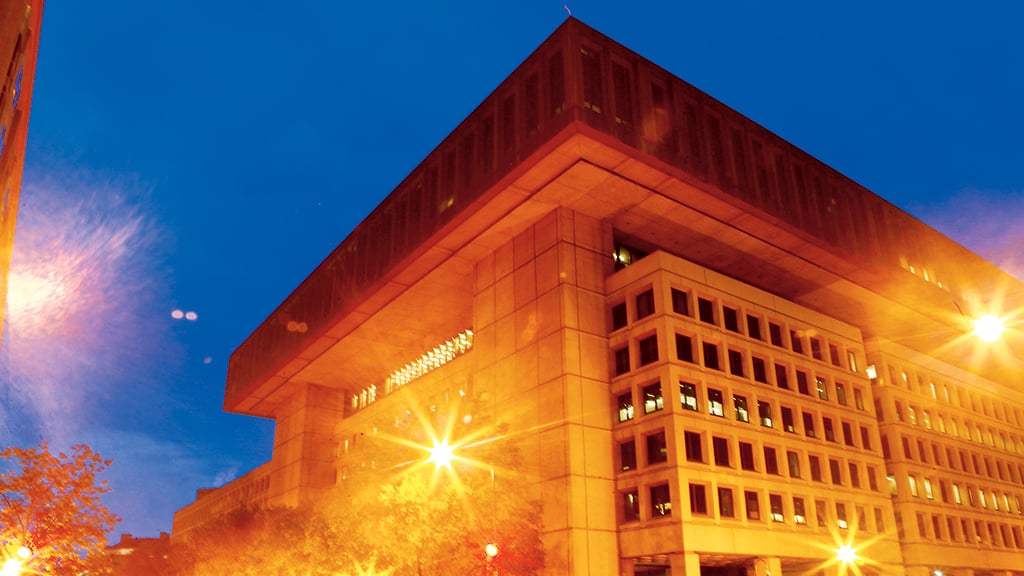Why would a fortysomething law professor want to be a part-time cop? “I was a little bit bored,” says Rosa Brooks, who decided to become a reserve officer with DC’s Metropolitan Police Department when she had a yearlong sabbatical from teaching and not much to do. A longtime scholar of human rights and political violence, she’d been deeply curious about cop life. Facing a yearlong sabbatical, she signed up as a reserve officer with the MPD. “Policing is a violent culture, and a very opaque one,” she says. “The opportunity to see from the inside how that world works was intellectually fascinating.”
Though she didn’t go into it planning to write a book, Brooks eventually decided to share what she learned, and the result is Tangled Up in Blue: Policing the American City. It’s a compelling fish-out-of-water look at her days in uniform and also a clear-eyed exploration of modern policing. Brooks has since hung up her badge and gun, but she’s still engaged with law enforcement as cofounder of Georgetown Law’s Program on Innovative Policing, which among other things has teamed up with the MPD on a fellowship that helps young officers explore issues such as racism and the use of force.
There’s a particularly scary moment in the book that seems very relevant to current conversations about police violence. You and your partner respond to a burglar alarm, and a guy in the apartment jumps out and surprises you.
It was the kind of call police get all the time. My partner and I get there and the front door is cracked open. The entryway is completely dark. My partner unholstered his weapon but held it down to the side, and I did the same thing. We tiptoed in, and suddenly a light goes on and a figure pops out, silhouetted against the light. We train at the firing range for a situation where a target pops up, and you’re supposed to shoot at it. But neither of us did shoot.
My partner said, in a very calm voice, “Hi, there was a burglar alarm. Can you come on out? This is the police.” And this voice says, “I can’t come out.” Another police officer might have acted with anger and aggression. But my partner said, “Why not?” The [voice] says, “I just took a shower, I’m naked.” A minute or so later, a kid—probably 14, 15, 16—comes out with a towel around his waist and he’s dripping wet. He says, “This is my father’s apartment. I came over to take a shower.” With different police officers, it could have gone so badly.
So what did you take away from that experience?
It reinforced something that I already believed deeply, which is that one of the biggest problems is that police officers are trained to go into situations primed to see threats. They’re trained that every time anybody reaches into a pocket or a bag or the glove compartment, Oh, this person could pull out a gun and shoot me. Sure, [a very small number of] people who reach into a pocket are going to pull out a gun. But the other 99.99 percent are innocent people. And we don’t say to cops, “Your job is to protect the 99.99 percent of people who are not a threat to you, even if they reach suddenly into their pocket.” Instead, we say to them, “Your most important mission is to go home safe every day. Your job is to anticipate threats.” And that’s going to lead to a lot of dead kids.
And police work, as you write in the book, is not as dangerous as people think it is.
So much of the self-image of cops is premised on “I do dangerous things that normal people are too chicken to do. I take risks.” When you say to cops, “You know what? Your job is not as dangerous as being a logger, a fisher, a roofer, the guy who tosses trash into the garbage truck,” they get all huffy, because they feel like you’re challenging their courage. They say, “Well, nobody’s shooting at the roofers or the loggers,” which is true. Roofers and loggers are much more likely than police officers to die on the job—but in an accident. The group that is most likely to die as a result of homicide while working is taxi and Uber and Lyft drivers. But nobody says we have to arm all the taxi drivers, we need to train Uber and Lyft drivers to shoot first and ask questions later if they see some passenger reaching into their bag unexpectedly.
If somebody were to say that homeowners have to stand underneath roofers so if they fall, the homeowner dies instead of the roofer, people would have an issue with that. We realize that roofers sign up for that risk.
Right. This illusion police have—that they’re constantly under threat—transfers the risks of mistakes away from the people who are trained and paid to take risks and onto people who are not trained and paid to take risks. If police were a little less quick to use force, there would be police who would be killed because they underestimated the threat from someone. But in that situation, the costs of mistakes are borne by the trained, armed, paid people. In the situation we have now, if a police officer miscalculates and views someone as a threat who’s not, the cost of that mistake is borne by ordinary people.
You write about how most cops are decent and well intentioned and that despite the perception that there are all of these racist, bully cops, people like that are very much in the minority. But isn’t it still a huge problem if there are some of those cops on the force and other cops aren’t doing anything to weed them out?
Oh, absolutely. But I don’t think the problem is just that there are a few racist, bully cops. I don’t think this is an issue of We’ve got a good system with a few bad apples. I think that the American criminal-justice system has racism baked deeply into it in all kinds of ways. I also think that police do what we tell them to do. They don’t make the laws, but they enforce them. If you ask the police to enforce certain kinds of laws in an environment that is already reflective of deep racial inequality—as well as other forms of injustice and inequality—the impact will be to hurt minorities more than it hurts white people.
What do you think of Defund the Police, for lack of a better term—the idea of redirecting some money away from police and toward more productive ways of helping people who need help?
I think it’s a bad phrase, good theory. And ironically, if the language was a little bit different, I think a lot of cops would wholeheartedly agree. You can say, “Well, let’s talk about the things you do that you don’t think it makes sense for you to be doing so that you don’t have to do those things anymore.” Then I think you actually get a lot of police officers saying, “Yeah, that is exactly what I want. Because I know I’m no good at being a social worker, I’m no good at being a medic, I’m not that good at doing all these things that I’m being asked to do.”
One of the biggest issues is over-criminalization and mass incarceration. As a cop, you had a really hard time with arresting poor people for minor things, knowing how much it was going to screw up their lives.
I suspected going in that that would probably end up being the case. Police do help people; that’s real, and I saw it over and over again. But even totally lawful, responsible, professional policing also hurts people, because police are enforcing laws that, frankly, are stupid and destructive for communities and individuals. The cops don’t make those laws. I understand some of the defensiveness police officers feel when they get blamed by voters for enforcing laws that the voters voted for.
I talk in the book about a couple of the arrests I made that I feel a sense of shame for having been part of, even though I was doing my job, and doing it appropriately and professionally. Arresting a woman who has shoplifted food. We arrested her because my partner discovered she had an outstanding warrant for failure to appear [in court]. We didn’t, under existing guidelines, have any choice about arresting her. But arresting this poor woman, who clearly had substance-abuse issues and was shoplifting food for her family—that wasn’t going to make anybody’s life better. That kind of thing just leaves you feeling sick.
The flip side of it is that it seems like you did enjoy a lot of what you did.
Well, part of it is I’m just nosy. I find other people’s stories fascinating. And there are times that I did feel like we were helping people. If you call 911 because somebody is having a heart attack, it’s probably going to be a cop who shows up and starts doing CPR first. If you’ve been robbed, it’s going to be a cop who shows up and puts their arm around you and says, “I’m so, so sorry. I know that must have been incredibly scary.”
You are no longer a reserve officer, but if you were, you probably would have been involved with the response to the storming of the Capitol on January 6. What went through your mind while watching that?
Like everybody else, I was just stunned. In one of my many other hats, I was involved in an effort called the Transition Integrity Project, where we sort of gamed out things that potentially could go wrong in this election and transition. This was completely expected. We predicted it, a gazillion other people predicted it. Both from that perspective and as someone who had worked as a police officer in Washington, DC, when I saw that the Capitol Police were not even in riot gear and they had such lightly guarded perimeters, I was thinking: How could they not have known?
I knew that people I knew would be heading there and would be potentially in danger, would be in a really difficult situation. And I knew that the racial politics would be really complicated because people would say, quite rightly, “These white-supremacist crazies are being treated with kid gloves relative to the way that peaceful racial-justice protesters were treated months ago.” And that’s real.
At the same time, I think it has complicated how people think about policing. After the racial-justice protests of the spring and summer, there is a real national mood—certainly in urban areas and on the left—of “The police are terrible, we should abolish them.” And it was interesting on January 6 see people going, “Well, the police are terrible, but they’re also sort of heroic and also we sort of want more of them and why weren’t they shooting people?” It highlighted all of the contradictions in public attitudes towards the police. We think the system is racist, which is not wrong. We also don’t want the police to use force—except when we kind of think that they should use force. And we don’t want them—except when we do want them. It opened up all those contradictions and complexities.
This interview, which has been edited and condensed, appears in the March issue of Washingtonian.

